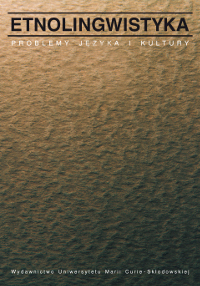Doświadczenie kobiecości w tekstach młodopolskich poetek
THE EXPERIENCE OF WOMANHOOD IN THE WRITINGS OF FEMALE POETS OF THE YOUNG POLISH PERIOD
Author(s): Dariusz TrześniowskiSubject(s): Language and Literature Studies, Studies of Literature
Published by: Wydawnictwo Naukowe Uniwersytetu Marii Curie-Sklodowskiej
Keywords: BODY; EMANCIPATION; WOMEN; WRITINGS OF THE REVOLUTIONARY WOMEN
Summary/Abstract: The scale and significance of the lyrical output of women at the turn of the 20th century is unprecedented in the history of Polish literature. Indeed, it would be difficult to find its analogue in any European literature of the time. The reason for this state of affairs is that the second wave of emancipation was manifested in Poland above all in literature. If the 19th-century positivism strived for the right to education and work, modernism emancipated the woman as a conscious subject of culture. The active poets of the period include: Bronislawa Ostrowska, Kazimiera Zawistowska, Maryla Wolska, Maria Komornicka and Zofia Trzeszczkowska. The author has distinguished several topics connected with existential experiences either accessible only to women or lived through and understood in woman-like ways. A record of bodily experiences was a manifestation of a social revolt against conventions and of the development of a fuller self-awareness, which was ready to ascribe feminine attributes to the world and to God. The experience of motherhood in Ostrowska's lyrical poetry was expressed in the oxymoronic juxtaposition of extreme feelings: joy, happiness, fear and physical pain; above all, however, it acquired a religious meaning by revealing the law of the eternal rebirth of life, an everlasting resurrection. The female poets of Young Poland gave a full literary voice to their feminine distinctiveness, anticipating the writings of the revolutionary women authors of the 20th century (Nalkowska, Pawlikowska-Jasnorzewska, but especially Swirszczynska and Poswiatowska).
Journal: Etnolingwistyka. Problemy Języka I Kultury
- Issue Year: 18/2006
- Issue No: 18
- Page Range: 329-348
- Page Count: 20
- Language: Polish

